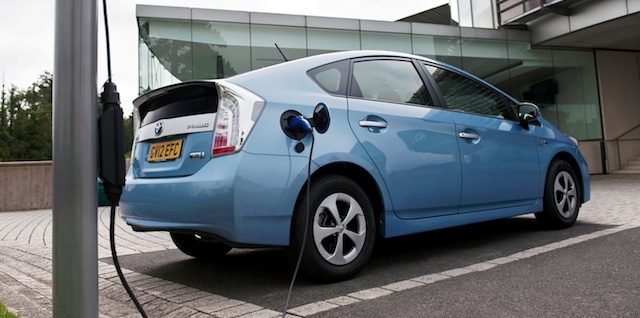Fleet managers looking to control their costs could turn to electric vehicles to deliver the savings they need, said Venson Automotive Solutions.
According to the Department for Transport, electric vehicle running costs are as low as just two pence per mile. In addition, the Energy Saving Trust suggests that the new generation of plug-ins cost just £2-£3 to fully charge at home for 100 mile range, compared to £9-£13 for a petrol or diesel.
Venson’s free ‘Plug-In Vehicle Guide’ answers the key questions drivers are asking about EVs, helping them make the move to plug-in cars and helping more businesses choose greener fleets.
One of the big misconceptions is that PHEVs offer poor fuel economy, but driving style, road conditions and many other factors influence this. A Toyota Prius Plug-In entered in last year’s Fleet World-organised MPG Marathon returned 109.14mpg over the 387 mile route. When compared to the UK’s average fuel cost of £5.20 per gallon, that’s just £14.63 to drive from the equivalent of London to Glasgow.
“With London potentially due to introduce an ultra-low emission zone in September 2019 and towns and cities across England considering implementing clean air zones to improve air quality, plug-in vehicles could come into their own” explains Simon Staton, Client Management Director of Venson Automotive Solutions.
“EVs and PHEVs are already exempt from the London Congestion Charge and they will also be able to drive in clean air zones without paying any charges, making them a smart choice for city orientated company car drivers.
The plug-in van grant offers 20% off the total cost of a vehicle up to a maximum of £8,000. The car grant goes up to £4,500 for category 1 models and £2,500 for category 2 and 3 models.
However, if choosing an EV as a company car, major benefit-in-kind tax savings are available versus petrol and diesel vehicles, with employers making Class 1A National Insurance savings; first year and standard rate VED is £0 for EVs (if the car costs more than £40,000 VED is £310 a year in years two to six) with PHEVs also benefiting from savings versus petrol and diesel cars; there are also capital allowance savings for employers. That’s all in addition to fuel savings, as previously highlighted.


